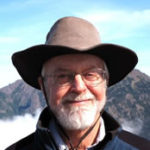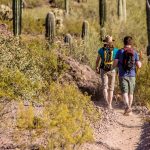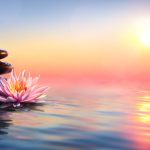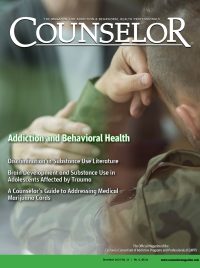Share
As we travel through life, many of us navigate a series of shifts concerning our beliefs in a higher power (or lack thereof), together with our sense of alignment with that power. I suspect this is particularly true for those of us who align ourselves with a Twelve Step orientation to recovery.
I particularly like the conceptualization of a higher power set forth in Step Three of Alcoholics Anonymous (AA): “Made a conscious decision to turn our will and lives over to the care of God as we understood Him (or Her)” (Alcoholics Anonymous World Services, 2001, p. 63). I was first introduced to this concept while teaching a college substance abuse course in my late thirties. I was immediately attracted to this open-ended nature of viewing our relationship to an overriding divine influence in our lives.
Growing up in a Protestant family, I experienced considerable skepticism concerning the religious orientation I was exposed to through church attendance and my parents’ religious beliefs. I was never comfortable with the thought of going through life as a “good boy” in order to spend eternity in a “pie in the sky” heaven after departing from this earthly life. Indeed, this concept struck me as both foreign and rather boring; I guess I have always been a reincarnationist at heart.
Throughout most of my mid-twenties and through my early thirties I experienced a deep-seated depression and became agnostic. My depression was triggered by my stumbling into a marriage in which my wife and I were married in a Catholic church. I initially interpreted my professed acceptance of Catholic values, including my agreeing that our offspring would be raised as Catholic, as “playing the game.” Immediately after the wedding, however, I became painfully aware of a pervasive feeling of self-hatred concerning the hypocrisy of my actions. This intense self-derision haunted me for most of the next decade. When my first wife and I ended our relationship, I returned to the Unitarian ideology I had flirted with prior to my marriage, while continuing to bear an overwhelming burden of guilt.
Around age thirty, while working as a research associate at UCLA, I attended a presentation given by an art student from UC Santa Barbara. The presentation featured close-up photos illuminating the marvels of nature, and it literally changed my life. I walked out fully convinced that a display of such awesome living beauty could only be the handiwork of a divine creative force. I dropped my agnosticism and have held a firm belief in a higher power ever since.
From my early thirties up to the beginning of my retirement I experienced a deepening of my affinity toward a generic higher power. At age thirty-five I took up meditation, which reinforced an intuitive sense of connection with a life force greater than myself. I also delved into metaphysics, driven by my involvement with the holistic health movement during my doctoral studies in public health. Throughout this period, I acquired a growing sense of appreciation for a divine influence greater than myself, while retaining the belief that I was essentially on my own in navigating both the joys and challenges in my life.
At age forty-four I was married in a Unitarian church to a wonderful woman of Catholic upbringing. She opened my eyes and my heart to exploring the majesty of nature through hiking in the wilderness. Our Sunday hikes in the desert and mountains essentially formed the core of our religious expression, which is still the case today.
In our mid-sixties my wife and I retired from our day jobs and relocated from Southern California to the northwest. While I was reluctant to make the move up north, the actual relocation precipitated an intense sense of disorientation on my part. It seemed that my world had fallen apart; I felt totally ungrounded and became engulfed in an overwhelming sense of fear and despair.
While living in California I would occasionally check in with a well-grounded therapist. In this new and remote rural environment, however, I was unable to find a therapist I could truly connect with. One day, out of desperation I ran up to our bedroom and threw myself down on my knees in a fervent prayer for support and guidance. While I spent a good deal of time white-knuckling it during our first year up north, the combination of daily prayer and meditation, together with immersing myself in my writing, enabled me to get though that year. I also found a valuable source of support in a local Unity church, which offered an eclectic approach to spirituality. I was also introduced to Buddhism though a monthly Buddhist studies group my wife and I hosted and led by a zen monk.
Ten years ago we moved to Tucson, Arizona, seeking a warmer, sunnier climate. Living in this pristine desert environment has inspired me to become more deeply attuned to the Great Spirit and Earth Mother as I am enthralled by the majesty of the nature I experience in our morning desert walks. I especially enjoy emptying my mind and fully communing with nature during these walks. I have also deepened my desire to live in alignment with basic Buddhist precepts, pursuing the wisdom of teachers including the Dalai Lama, Thich Nhat Hanh, Pema Chödrön, and Sharon Salzberg.
I believe I am continuing to evolve in the direction of embracing a truly blended approach to spirituality. While I attend mass with my wife on Sunday and believe in Jesus as a deity, I constantly turn to basic Buddhist precepts for practical guidance in leading the good life. I also derive valuable day-to-day guidance through praying to my higher power.
My deepening spiritual connection is reflected in my activism as a socio-political commentator. I am increasingly driven to focus my energies on combating global climate change fueled by environmental pollution; extreme inequities in distribution of wealth, exemplified by unconscionable disparities in terms of access to nutritious food and clean water; a heavy imprint of racial discrimination both at home and abroad; and here at home, as of this writing, a dangerously polarized political environment which in my opinion is exacerbated by a self-serving leader who appears completely out of touch with the well-being of both our nation’s citizens and the global citizens of our planet. I recognize that many readers will disagree with my last point, which reflects the beauty of living in a democracy where we are free to embrace and express our own views.
This column differs from my usual format, as it is autobiographical, in order to provide an in-depth case study of one person’s evolving connection with his higher power. If you would like more information on my concept of blended spirituality, you can read my previous columns in Counselor including “Deepening Our Connection with Our Higher Power” (parts one and two) in the June and August 2013 issues, and “The Role of Faith in Recovery” in the February 2014 issue.
As previously stated, the orientation toward a higher power set forth in Step Three of all Twelve Step programs provides a powerful foundation for recovery that is both enlightening and liberating. May you enjoy the journey as you continue your own evolving relationship with your higher power along your lifelong process of growth in recovery. Until next time—to your health!
References
- Alcoholics Anonymous World Services. (2001). Alcoholics anonymous (4th ed.). New York, NY: Author.
About Me
John Newport, PhD, is an addiction specialist, writer, and speaker living in Tucson, Arizona. He is the author of The Wellness-Recovery Connection: Charting Your Pathway to Optimal Health While Recovering from Alcoholism and Drug Addiction (2004). He is available for workshops, conference presentations, and staff trainings on all aspects of wellness and recovery, as well as for personal wellness and recovery coaching by phone. He can be reached at healingtucson@hotmail.com.













 Counselor Magazine is the official publication of the California Association of Addiction Programs and Professionals (CCAPP). Counselor offers online continuing education, article archives, subscription deals, and article submission guidelines. It has been serving the addiction field for more than thirty years.
Counselor Magazine is the official publication of the California Association of Addiction Programs and Professionals (CCAPP). Counselor offers online continuing education, article archives, subscription deals, and article submission guidelines. It has been serving the addiction field for more than thirty years.